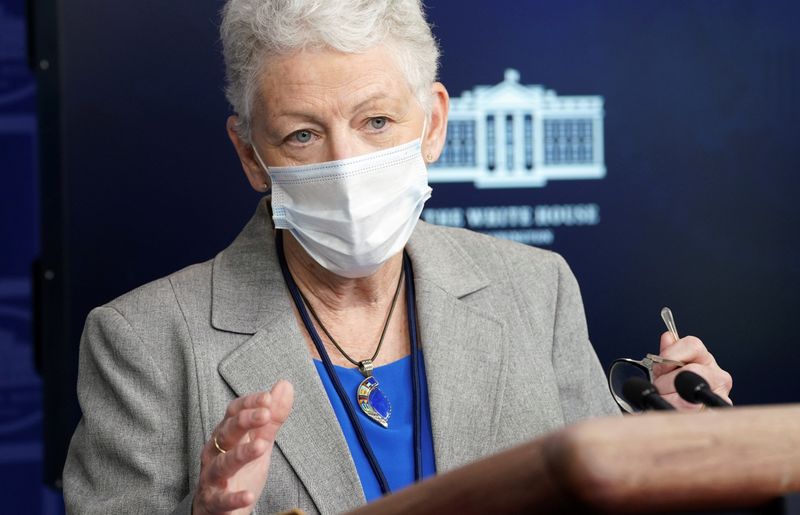(Reuters) -The Biden administration said on Thursday it will seek to pass a law requiring utilities to source more power from renewable and other clean sources as part of an ambitious effort to address climate change through investing in infrastructure.
A so-called clean energy standard (CES) would help put the United States on a path to delivering on President Joe Biden’s campaign promise to decarbonize the nation’s electricity sector by 2035, and the whole economy by 2050.
Nuclear energy and carbon capture and storage technologies would be included in the policy, Gina McCarthy, White House national climate adviser, said during a briefing with reporters.
“We’re interested in pursuing this and talking to Congress about it,” McCarthy said. “The industry itself sees it as one of the most flexible and most effective tools.”
McCarthy’s remarks came a day after Biden unveiled a $2 trillion plan to reshape the world’s largest economy and counter China’s rise. Much of the proposal was aimed at mitigating climate change through investing in clean energy technologies that could create union-represented jobs.
The administration did not give details on how it would seek to structure a national clean energy standard.
Democrats in Congress last month introduced a bill that would require 80% of retail power sales to come from sources that produce little or no carbon emissions by 2030, rising to 100% by 2035. Some Republicans have said the legislation would raise energy prices and destabilize the grid.
The federal government has lagged many states in developing policies requiring clean power sources. Most U.S. states have already set such goals, though fewer than 10 have set goals to move entirely away from fossil fuels and none would achieve net-zero emissions by 2035.
Many of the nation’s biggest utilities, responding to investor pressure or state-mandated targets, have already pledged to eliminate all of their carbon emissions by 2050, with a few promising earlier timelines.
But the industry has said that rapid advances in technologies like batteries, carbon capture and advanced nuclear will be critical to reaching those goals.
(Reporting by Nichola Groom, David Shepardson and Trevor Hunnicutt; Editing by Marguerita Choy and Alistair Bell)
























